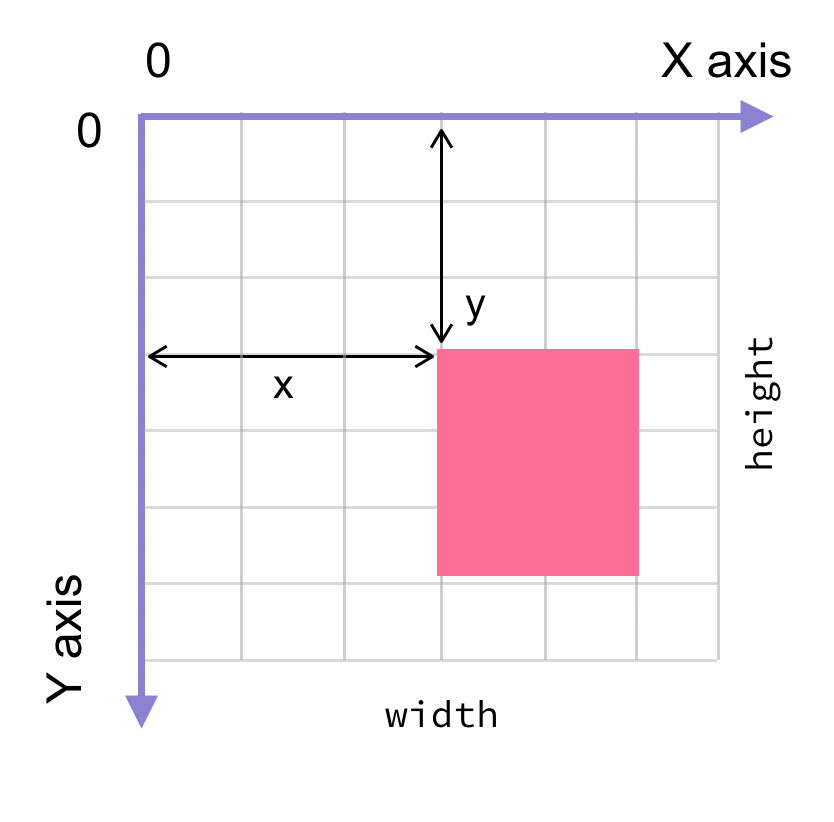Android扩展了EditText在画布上绘制的边界
我正在尝试通过扩展文本并覆盖EditText函数在下面的onDraw上绘制文本:
正如您所看到的,这个词被切断了,从我在网上看到的内容来看,除了在画布上绘画外,他们在画布上什么也没做。从我观察到的结果来看,我认为由于EditText的画布是有限的,所以才将其切掉。 我知道有一个更好的解决方案,而不是覆盖onDraw,但我想知道为什么会这样。有人可以解释或提示吗?非常感谢。
CustomEditText.java:
public class CustomEditText extends AppCompatEditText {
private Rect mTitleRect;
private Rect mErrorTextRect;
private Paint mTitlePaint;
private Paint mErrorTextPaint;
private String mTitle = "";
private String mErrorText = "";
private int mEditTextHeight;
public CustomEditText(Context context) {
super(context);
}
public CustomEditText(Context context, AttributeSet attrs) {
super(context, attrs, R.attr.customEditTextStyle);
init();
init(context, attrs);
}
public CustomEditText(Context context, AttributeSet attrs, int defStyleAttr) {
super(context, attrs, defStyleAttr);
init();
init(context, attrs);
}
private void init() {
mTitleRect = new Rect();
mErrorTextRect = new Rect();
mTitlePaint = new Paint();
mErrorTextPaint = new Paint();
mTitlePaint.setColor(Color.BLACK);
mTitlePaint.setTextSize(getResources().getDimension(R.dimen.text_small));
mErrorTextPaint.setColor(Color.parseColor("#FF4336"));
mErrorTextPaint.setTextSize(getResources().getDimension(R.dimen.text_small));
}
private void init(Context context, AttributeSet attrs) {
TypedArray a = context.obtainStyledAttributes(attrs, R.styleable.CustomEditText);
try {
mTitle = a.getString(R.styleable.CustomEditText_headerTitle);
mErrorText = a.getString(R.styleable.CustomEditText_errorText);
} finally {
a.recycle();
}
}
@Override
protected void onSizeChanged(int w, int h, int oldw, int oldh) {
mEditTextHeight = h;
super.onSizeChanged(w, h, oldw, oldh);
}
@Override
protected void onDraw(Canvas canvas) {
super.onDraw(canvas);
if (mTitle != null && !mTitle.isEmpty()) {
mTitlePaint.getTextBounds(mTitle, 0, mTitle.length(), mTitleRect);
canvas.drawText(mTitle, getPaddingLeft(), getPaddingTop() - mTitleRect.height(), mTitlePaint);
}
if (mErrorText != null && !mErrorText.isEmpty()) {
mErrorTextPaint.getTextBounds(mErrorText, 0, mErrorText.length(), mErrorTextRect);
canvas.drawText(mErrorText, getPaddingLeft(), mEditTextHeight + mErrorTextRect.height() / 2, mErrorTextPaint);
}
}
}
attrs.xml
<declare-styleable name="CustomEditText">
<attr name="errorText" format="string|reference" />
<attr name="headerTitle" format="string|reference" />
</declare-styleable>
XML:
<com.mypackage.CustomEditText
android:id="@+id/et_username"
android:layout_width="match_parent"
android:layout_height="wrap_content"
android:hint="Username"
app:errorText="errorrrr"
app:headerTitle="testing title" />
2 个答案:
答案 0 :(得分:1)
我认为您误解了 android 画布坐标。画布的原点坐标 (0, 0) 位于最左上角,向右移动时 x 坐标增加,向下移动时 y 坐标增加。
 您需要传递要绘制的文本的左上坐标。
您需要传递要绘制的文本的左上坐标。
我不明白你想在哪里绘制文本,所以假设你想在视图的左上角绘制必须像这样调用绘制文本
canvas.drawText(mTitle, getPaddingLeft(), getPaddingTop(), mTitlePaint);
答案 1 :(得分:0)
public class CustomEditText extends AppCompatEditText {
private Rect mTitleRect;
private Rect mErrorTextRect;
private Paint mTitlePaint;
private Paint mErrorTextPaint;
private String mTitle = "";
private String mErrorText = "";
private int mEditTextHeight;
public CustomEditText(Context context) {
this(context, null);
}
public CustomEditText(Context context, AttributeSet attrs) {
this(context, attrs, 0);
}
public CustomEditText(Context context, AttributeSet attrs, int defStyleAttr) {
super(context, attrs, defStyleAttr);
init();
init(attrs);
}
private void init() {
mTitleRect = new Rect();
mErrorTextRect = new Rect();
mTitlePaint = new Paint();
mErrorTextPaint = new Paint();
mTitlePaint.setColor(Color.BLACK);
mTitlePaint.setTextSize(getResources().getDimension(R.dimen.text_small));
mErrorTextPaint.setColor(Color.parseColor("#FF4336"));
mErrorTextPaint.setTextSize(getResources().getDimension(R.dimen.text_small));
}
private void init(AttributeSet attrs) {
TypedArray a = getContext().obtainStyledAttributes(attrs, R.styleable.CustomEditText);
try {
mTitle = a.getString(R.styleable.CustomEditText_headerTitle);
mErrorText = a.getString(R.styleable.CustomEditText_errorText);
} finally {
a.recycle();
}
}
@Override
protected void onSizeChanged(int w, int h, int oldw, int oldh) {
mEditTextHeight = h;
super.onSizeChanged(w, h, oldw, oldh);
}
@Override
protected void onDraw(Canvas canvas) {
super.onDraw(canvas);
setPadding(0, 0, 0, (int) getResources().getDimension(R.dimen.text_small));
if (mTitle != null && !mTitle.isEmpty()) {
mTitlePaint.getTextBounds(mTitle, 0, mTitle.length(), mTitleRect);
canvas.drawText(mTitle, getPaddingLeft(), getPaddingTop() - mTitleRect.height(), mTitlePaint);
}
if (mErrorText != null && !mErrorText.isEmpty()) {
mErrorTextPaint.getTextBounds(mErrorText, 0, mErrorText.length(), mErrorTextRect);
canvas.drawText(mErrorText, getPaddingLeft(), getHeight(), mErrorTextPaint);
}
}
相关问题
最新问题
- 我写了这段代码,但我无法理解我的错误
- 我无法从一个代码实例的列表中删除 None 值,但我可以在另一个实例中。为什么它适用于一个细分市场而不适用于另一个细分市场?
- 是否有可能使 loadstring 不可能等于打印?卢阿
- java中的random.expovariate()
- Appscript 通过会议在 Google 日历中发送电子邮件和创建活动
- 为什么我的 Onclick 箭头功能在 React 中不起作用?
- 在此代码中是否有使用“this”的替代方法?
- 在 SQL Server 和 PostgreSQL 上查询,我如何从第一个表获得第二个表的可视化
- 每千个数字得到
- 更新了城市边界 KML 文件的来源?
